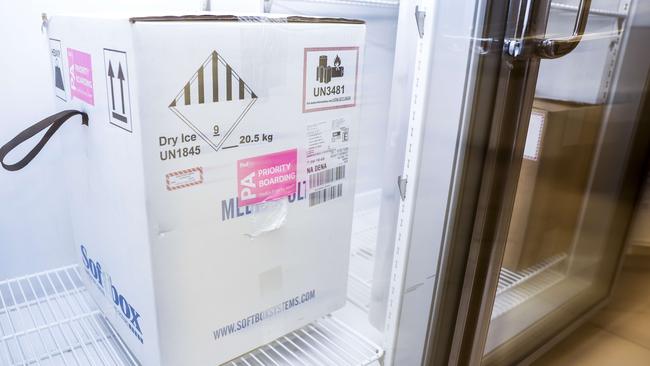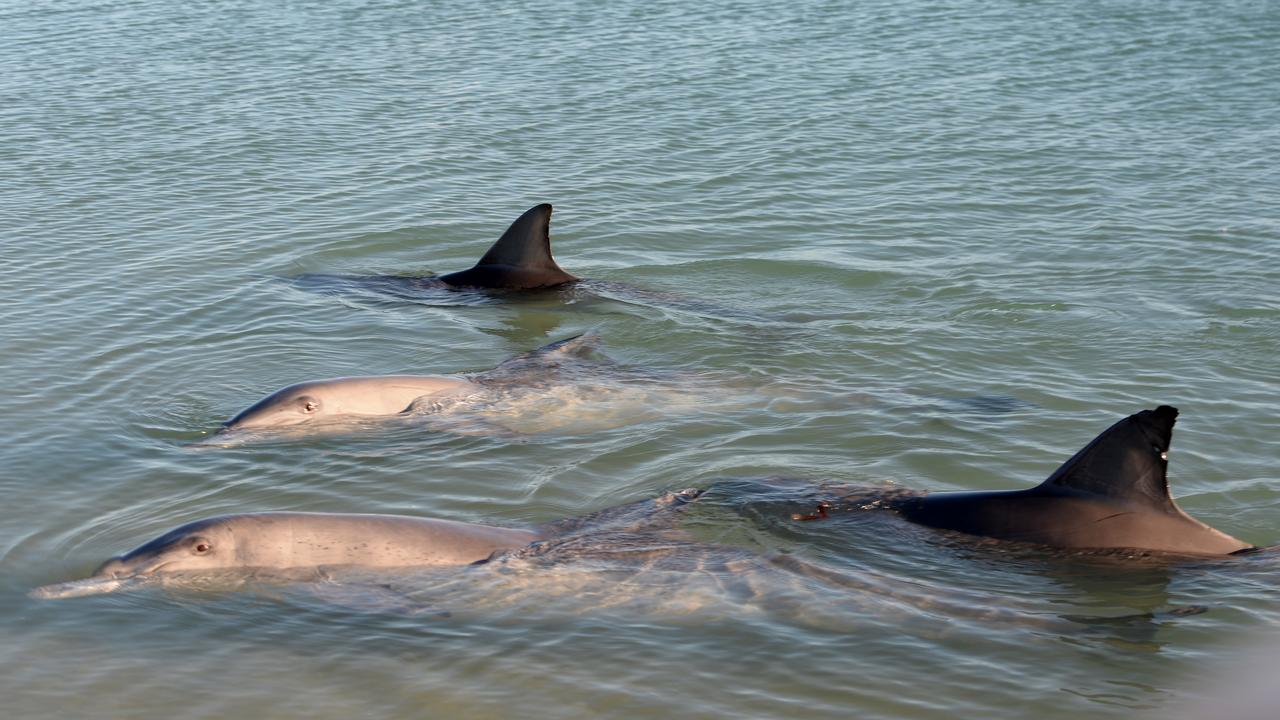GPS to keep track of COVID-19 jabs, with freezer crates ready to roll
Thermal GPS-enabled sensors will be installed in frozen shipper boxes to track COVID-19 vaccines across Australia.

Thermal GPS-enabled sensors will be installed in frozen shipper boxes to track the location and temperature of COVID-19 vaccines across Australia and prevent any spoilage.
Pharmaceutical company Pfizer has confirmed it will ensure its vaccines remain stored at below minus 70C during transportation across the country after they arrive by air from manufacturing facilities overseas.
“We will utilise GPS-enabled thermal sensors in every thermal shipper with a control tower that will track the location and temperature of each vaccine shipment across their preset routes,” the company said. “These GPS-enabled devices will allow Pfizer to proactively prevent unwanted deviations and act before they happen.”
Australia has ordered 10 million doses of Pfizer’s mRNA vaccine, which was this week approved for emergency use by the Food and Drug Administration in the US and is now being administered to Americans.
The vaccine is expected to be given approval by the Therapeutic Goods Administration in Australia in late January, with dosing to begin here in March.
Australia’s vaccines will be manufactured at one of Pfizer’s two manufacturing facilities in Michigan or Puurs in Belgium, and will arrive in Australia by air in boxes that contain about 975 vaccine doses. The vaccine is contained in individual vials that contain five doses each. The special boxes known as “dry shippers” contain dry ice and can also be used as storage sites for the vaccine if an ultra-low temperature freezer is not available, as in GP clinics. The dry shippers can be refilled with dry ice and can store vaccines for up to 15 days. The vaccines can be stored for five days after being taken out of the boxes in normal fridge temperatures of between 2C and 8C.
The federal government has not yet revealed the location of distribution sites for the vaccine. Hospitals typically contain ultra-low temperature freezers that would enable storage of the vaccine, and in the UK, administration of the jabs was confined to 70 hospital hubs since the vaccine rollout began earlier this month. By Wednesday, almost 140,000 people had been vaccinated in the UK, including those aged over 80, care home workers and some National Health Service staff. GP-run vaccination centres in more than 100 locations across England have now also begun administering vaccinations, including at pop-up outdoor venues set up to speed up the rollout.
There were initially questions in the UK surrounding how the vaccine would be rolled out to residents in care homes, with the regulator needing to grant special approval for vaccines to be broken down into smaller consignments while ensuring that the vaccine stays at very cold temperatures.
In Australia, there are likely to be significant challenges administering the Pfizer vaccine to remote communities, especially given searingly hot summer temperatures in central Australia.
Australia’s acting chief medical officer, Paul Kelly, said the logistics would be a challenge, but Pfizer had guaranteed it would be possible. “That will be a challenge but we’ve done that before, we have very high rates of vaccination in Australia including and particularly in remote Aboriginal communities,” Professor Kelly said. “We’re used to the challenges of those logistics and also to a cold chain element of that — most vaccines need to be kept at least refrigerated if not colder. So we’re used to that as a concept. The minus 70 will be a particular challenge.
“Pfizer have guaranteed that they have the technology and the infrastructure and the logistics sorted so we will hold them to that contract.”
The government is also in talks with the company MTX, which has contracts with several American state governments assisting in the vaccine rollout. MTX CEO Das Nobel said hot summer temperatures would pose a challenge for the Pfizer vaccine rollout here.
“The challenge with Australia is that it’s going to be the middle of summer, which makes logistics a little bit more difficult,” he said.
In the US, MTX has been involved in monitoring the temperature of the Pfizer vaccines. “In some of the areas there are clinics or organisations that can administer vaccines but they didn’t have the advanced cap with the right temperature, so they needed to upgrade,” he said. “A lot of these organisations needed support.”




To join the conversation, please log in. Don't have an account? Register
Join the conversation, you are commenting as Logout